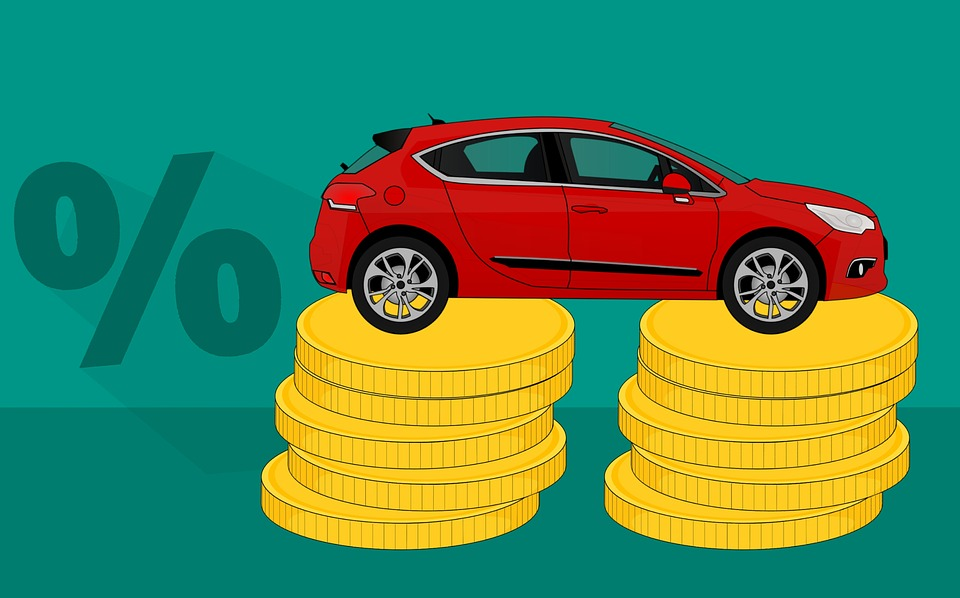Car finance calculator
These estimates are subject to credit checks and may change when you apply for finance. this is for example purposes only
Hire Purchase (HP)
APR 11.9%60 monthly payments of
£0
- Interest rate
- 11.9% APR
- Amount of interest
- £0
- Total payment
- £0
Personal Contract Purchase (PCP)
APR 11.9%60 monthly payments of
£0
- Optional final payment
- £0
- Interest rate
- 11.9% APR
- Amount of interest
- £0
- Total payment
- £0
Rates from 9.9% APR: the exact rate you will be offered will be based on your circumstances, subject to status. Representative Hire purchase (HP) example: borrowing £7,000 over 5 years with a representative APR of 21.9%, the annual interest rate of 21.9% (Fixed) and a deposit of £0, the amount payable would be £185.33 per month, with a total cost of credit of £4,119.81 and a total amount payable of £11,119.81. We look to find the best rate from our panel of lenders and will offer you the best deal that you're eligible for. We receive a fixed fee commission per finance agreement, or we receive a commission based on a percentage of the total amount of finance taken. This will not affect the interest rate offered or the total amount repayable. Our service is free.
When you finance a car, you make a credit agreement with your lender. You enter into a contract where you agree to pay the amount financed plus a finance charge over a fixed period of time. This helps consumers to spread out the huge costs of buying a car, making this deal very accessible to the general public.
Car finance can take many forms and implies different terms and conditions, including requirements to get accepted. The good news is that there is a suitable option for anyone. Carplus will help you find the right car and a suitable car finance option! We provide HP finance and PCP finance. We can also help you if you have no deposit, have negative equity, you are self-employed or have a bad credit rating.
Our customers who have already got car finance!
- High Acceptance Rate
- Representative APR 21.9%
- Rated excellent on Trustpilot
How does car finance work in the UK?
The main idea behind car finance is simple - you choose a car, a lender pays for it, and you pay back the purchase price with some interest. The money you pay is divided into portions - a deposit and a series of monthly payments. Although, some car finance options require no deposit (i.e., upfront payment) at all. And the amount of interest increases with the amount you borrow and the term length of the finance agreement.
You technically become the sole owner only at the end of your finance contract. Once you make all of your payments, you can do whatever you want with the car - keep it, sell it, or exchange it for a new car.
But going into specific types, this arrangement becomes a bit more complicated. This is what we’re here to figure out.
What are the different types of car finance?
The first step involved with car finance is choosing a product for your unique situation. In the next several sections, we’ll list and describe the following options:
- Hire purchase (HP)
- Conditional sale
- Personal contract purchase (PCP)
- Personal loans
- Personal leasing
- Bank loans
| Finance features: | Hire purchase (HP) | Personal contract purchase (PCP) | Personal loan |
|---|---|---|---|
| Requires initial deposit | Optional | Optional |  |
| Car is yours at the end of the agreement |  | Optional |  |
| Fixed monthly payments |  |  |  |
| Optional balloon (final) payment |  |  |  |
| Avoid excess mileage charge |  |  |  |
| Secured against an asset (e.g. a car) |  |  |  |
| Support with vehicle issues |  |  |  |
Hire Purchase (HP)
- Best for: low overall costs
- When it’s a good idea: If you're looking to keep a car for several years
- Offered by: Financing companies, car dealerships
- Available for: New and used cars
Hire purchase car finance is a form of finance when you hire a car over the contract period, with the intention to purchase it at the end of the contract. It is one of the most commonly used forms of car finance.
How does it work? Examples
Based on a typical HP agreement, you need to pay a deposit (for example, 10% of the car’s value). The financing company then contributes the remaining 90%. Then, you will pay off that amount plus interest over a fixed term (1-5 years on average) in monthly installments. In the meantime, the loan will be secured against the car.
You can’t sell the car without the lender’s permission because you don’t own the car until it’s completely paid off. Usually, there is a relatively inexpensive option to transfer the ownership of the car.
Below are approximate calculations for HP finance:
- Car price: £8,000
- Deposit: £1,000
- Balance to finance: £7,000
- Repayment period: 40 months
- Representative APR: 19.3%
- Monthly payment: £205 a month
- Total cost of credit: £2,831
- Total amount payable: £9,831
Pros & Cons of HP
If you have more questions about HP, check out this article for answers. In the meantime, let’s quickly break down the pros and cons.
| Advantages | Disadvantages |
|---|---|
|
|
What Is a Conditional Sale?
Conditional sales and hire purchases are very similar and work in practically the same way. However, there is one big difference - as soon as you make your last payment, you automatically become the owner of the car. This means you don’t have to pay at the end, although your monthly payment will be higher than the one for HP.
If you can consistently afford a higher, this option will work for you. You don’t have to save up for a larger last payment at the end of the plan, so it’ll be easier for you to create a monthly budget.
A usual repayment term for a conditional sale is 2-6 years. Before the plan kicks in, you need to make the first payment of about 10% of the car’s value.
Get my quote ➜Personal Contract Purchase (PCP)
- Best for: flexibility
- When it’s a good idea: When you want to hand the car back at the end of the contract
- Offered by: Motor manufacturers, car dealerships, finance companies
- Available for: New and used cars
PCP car finance is structured so that the buyer won't have to pay off the full value of the car unless they decide to keep it. The consumer only gets a loan for the difference between the car’s brand new price and its predicted value at the end of the term.
How does it work? Examples
You visit the dealer or online retailer, choose a car, pay the deposit of around 10%, sign the contract with the interest rate and monthly payments set in place, and drive away. But there is an important detail that makes this option more complex - Guaranteed Minimum Future Value, or GMFV.
Let’s say you’re setting up a two-year PCP agreement. The dealer will make an assessment of what the car will be worth in two years’ time. This figure is referred to as GMFV, provided by the finance house underwriting the agreement. While your PCP contract is active, you’ll pay off the difference between the price of a new car and its GMFV figure at the end of the term.
Your options at the end of the term are:
- Return the car and pay the charges for its wear and tear, mileage, etc.
- Use the resale amount as a down payment for a new car.
- Pay the balloon payment (what the dealer thinks the car is worth now) and keep it.
Below are exemplary figures for PCP deals:
- Car price: £15,000
- Customer deposit: £1,000
- Dealer contribution: £1,000
- Final payment: £1,000
- Balance to finance: £12,000
- Mileage agreement: 10,000 miles
- Repayment period: 48 months
- Representative APR: 10.9%
- Monthly payment: £319/month
Pros & Cons of PCP
| Advantages | Disadvantages |
|---|---|
|
|
Personal Loans
- Best for: People with a clean credit report
- When it’s a good idea: If you want lower monthly payments but don’t mind paying longer
- Offered by: Banks, P2P lending companies, car supermarket
- Available for: New and used cars
Personal loans generally have no restrictions on how you use them. They are often unsecured, so if you use one to fund your vehicle purchase, you’re not required to use the newly acquired vehicle as collateral.
How does it work? Examples
A personal loan for a car is the same as a personal loan for any other purpose - you borrow a fixed sum and repay it in monthly installments with interest. The difference from other finance options is that you don’t borrow it from the dealership or pay the initial deposit.
If you take out a personal loan, you essentially become a cash buyer from the car dealership’s perspective. Loan terms vary greatly depending on which bank you choose. Usually, they are offered for 1-7 years.
You can opt for secured or unsecured loans. Secured loans are cheaper, but the downside is that your collateral (e.g., your house) will be at risk until you pay back the full amount plus interest.
Here is a representative example of a personal loan:
- Amount to borrow: £15,000
- Repayment period: 48 months
- Representative APR: 3.1%
- Interest rate (fixed): 3.1%
- Total amount payable: £15,954.80
- Monthly payment: £319/month
Pros & Cons of a Personal loan
| Advantages | Disadvantages |
|---|---|
|
|
Personal Leasing (Contract Hire)
Under a PCH agreement, you take control of a car for a contractual period, which is what dealerships call the ‘lease period’. The car will be in your possession, but it’s the dealership that owns the car.
In simple terms, you ‘rent’ the car throughout the duration of your contract and return it when the contract expires. The good news is that the dealership (or finance company) will have to worry about depreciation values and disposal of the car.
How does it work? Examples
Before signing the contract, you agree on an annual mileage allowance - the higher you set it, the higher your monthly payment will be. Then you make an advance rental payment (usually fairly affordable) and take delivery of the car.
You’ll make monthly payments over a fixed term, and when the contract expires, you’ll simply hand the car back. As long as the vehicle is in good condition and the mileage allowance wasn’t exceeded, there will be no further costs.
It’s also important to mention that while the contract is still active, you don’t have to pay service, maintenance, or road tax. These costs are usually incorporated into the hire agreement.
Pros & Cons of a PCH
If you are torn between PCP and PCH, we have an article covering their differences and similarities. But in this one, we’ve yet to cover the advantages/disadvantages of specifically PCH.
| Advantages | Disadvantages |
|---|---|
|
|
Bank Loans
As the name suggests, you borrow an agreed amount from a bank and pay it back with interest. It is normal for interest rates for bank auto loans to be lower, especially if you set a shorter agreement length.
The main benefit of borrowing from a bank is the incentives. For example, just like with credit cards, you can earn points that you can spend on flights with a certain airline company (depends on the bank).
How does it work? Examples
Bank auto loans are essentially the same as personal loans but with two restrictions - they are only offered by banks and only for vehicles (consumer loans can be used for anything). When you work with a bank, you don’t have any ties to the dealer or manufacturer. After you’ve bought the car, you can use it as you see fit.
Pros & Cons of a Bank loan
| Advantages | Disadvantages |
|---|---|
|
|
What do I need to know before applying?
First of all, you need to ask yourself the right questions:
- How much do I need to borrow vs. how much can I borrow?
- What other debts or financial commitments do I have?
- What is the upper limit for my monthly repayments?
- How much time am I willing to spend repaying the loan?
- Do I want to become the owner right away?
- How long before I need to replace this car?
You also need to get your affairs in order. Before any lender can approve you, you need to pass certain checks - proof of identity and address, bank details, employment, driving license, and credit rating. This means you need to present yourself as a reliable borrower on all these documents. If you can improve your image for any of those checks, take that opportunity to maximize the chance of approval.
Finally, you need to calculate how much money everything is going to cost in total. You should account for the ongoing costs of owning a car like insurance, tax, MOT, fuel, repairs, etc. Car financing is a serious financial commitment, which is why you need to budget for all these expenses and plan for emergencies.
How should I manage my car finance repayments?
When you finally get approved and complete all the paperwork, you enter the arguably most important part - making your repayments. It will take a long time, but there will be no time to slack off. There is so much at stake - your car, credit score, and all future credit opportunities.
Here are some tips to make this long journey easier:
- Pay more than the minimum - If you increase your payments, you reduce the time you'll keep making interest payments. For example, if your minimum monthly payment is £270, consider rounding your payment up to £300.
- Use windfall gains to your advantage - If you get a raise, a bonus, or any other unexpected money, use it to pay off the loan.
- Increase your payment frequency - If you can’t pay more, try to pay more often. There are 12 months in a year, but there are 26 fortnights. So, if you pay every two weeks, you'll make the equivalent of 13 monthly repayments annually.
- Schedule your payments - No risks of accidentally missing a payment, but you should still routinely monitor your account to make sure you have enough on your balance.
- Avoid taking other big loans - You may not be able to commit to this recommendation 100%, but you should at least try to adjust your lifestyle and spending habits.
Summary
As you can see, if one option doesn’t fit, you can always turn to an alternative. HP and PCP are the most common choices, so you can start from there. If you have an idea of what sort of budget you're working with, even better - you can enter all the details into an online calculator and get an approximate quote.
Have you made up your mind about which option sounds right to you? If not, shop around for different deals, ask for quotes, and direct further questions to car finance brokers and consultants. This is not the time for rushed decisions, so the more information you have going in, the better.
Guides

Top 10 tips to improve my credit score for car finance
Are you having difficulty getting car finance? It might be because you have a poor credit score. It might simply be a question of knowing where to look for it....

Car Finance Glossary
Trying to understand car finance can be confusing, especially with all of the car finance jargon involved which can be difficult to make sense of. Car dealers can prey on...

Can I drive my financed car abroad?
Check our extensive guide on how to drive you car to EU if its on finance. Taking your financed car abroad can be difficult. Not only is it logistically complicated,...

Can you sell a car on finance?
Car finance agreements can often last several years, and it’s understandable if you decide you’d like to sell your car before the end. People often ask whether you’re able to...
Why Our Customers Rate Us 5 stars

Compare deals
Compare and find the best car finance deals - quick and easy. When comparing deals, consider the part-exchange value of your current car to reduce the overall cost.
No impact to your credit
Getting a finance quote with Carplus won't affect your credit score, but a hard search will be completed before completion of the deal
No deposit deals
No deposit options are available on all deals. Check if you are eligible today and get approved risk-free with soft search.
Instant quote decision
Get your UK car finance decision in minutes. Check your eligibility first. Apply in confidence with Carplus
Find your perfect car finance deal
Your questions answered
Is it worth getting a car on finance in the UK?
Having the ability to pay for a car with cash outright certainly eliminates some of the struggle and paperwork. However, most people find themselves in a situation where they need to take out a finance agreement. But then, they can enjoy the benefits from it - spread-out costs and improved credit score. The fact that you can get a good car on a tight budget is perhaps the only reason you need to make car finance worth it.
What is the best way to finance a car?
We recommend shortlisting a few options from our article and choosing the one that you can afford, you’ll likely be accepted for, and gives you the most additional perks. But to generalize, many people will probably find Personal Contract Purchase (PCP) best for flexibility and Hire Purchase (HP) - best for low overall costs.
What is bad about financing a car?
Some of the reasons simply have to do with the regular drawbacks of buying new cars - they depreciate, and repair costs can add up. As for car finance specifically, you get into (or add to existing) debt. Making payments to a bank or other lender can be stressful if you don’t have ample revenue flowing into your account.
What credit score is needed to buy a car?
There’s no minimum credit score required to buy a car. But if you’re hoping to get a good deal on finance options, you’d benefit from having a fair score (Experian 721-880) or a good score (Experian 881-960). With a bad credit score, you’ll still be able to get a car, but the lender will likely offer higher interest rates.
Is car finance easy to get in the UK?
It depends on what option you choose and your personal circumstances. For example, if you have a poor credit history, getting approved for HP can be easier than a personal loan. If you want to know your chances before applying, use online eligibility checkers and speak to a car finance consultant.
When should I finance a car?
Consider financing a car when: - You want/need a newer car but are unable to save up enough cash; - You can get a low-interest loan that you can afford; - Regular payments won’t put a strain on your budget; - You need additional tools to improve your credit.





